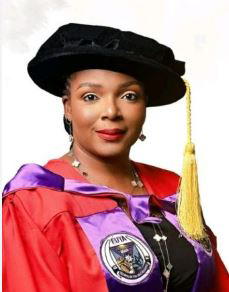
By Adesina Wahab
With Africa being the fastest urbanising continent, as the number of cities increased from 3,300 to 7,600 between 1990 and 2022 in a manner different from established norms of urbanisation, there is a need to urgently envision a better future for the cities, and take urgent steps to stem poverty and other tensions rocking those cities.
Also, the prevalent reality of poverty across the cities is starkly different from the ‘African Rising’ rhetorics of global economic interests who paint a picture of a continent flourishing and the growth of an emerging middle class with Westernised consumption patterns.
Resulting from the above, there is need to envision an African urban future that would promote cities that would be for all.
This was the submission of Prof. Taibat Lawanson of the Department of Urban and Regional Planning at the University of Lagos, UNILAG, while delivering an inaugural lecture titled “Alternative Urbanisms: Beyond Utopian Visions of the ‘Emerging’ African City”, on Wednesday.
She posited that “there is a clear disjuncture between the political aspirations of city leaders and the reality in many African cities, while political leaders have Utopian Visions, the lived experience of many citizens is that of dystopia.”
She added that state’s “will to govern and improve” across different eras repeatedly comes into conflict with the “will to survive and thrive” of those cast as the subjects of state power and whose varied agency and interactions intersect in attempts to co-opt or subvert the power of the state’s plans.
Lawanson called for Africa’s urban development agenda to be centred on people and grounded in human rights and people – planet sensitive principles.
“We must also recognise and leverage the transformative power of people-led practices for sustainable urban development. There is need to recognise the agency in community led urban development practices. The agency of everyday citizens manifests in urban adaptive practices that are authentic responses to environmental and economic shifts, and are non-inferior in shaping our urban identity.
“We must practice urbanisation at scale. In prioritising urban development interventions, there is need to ensure that projects are fit for purpose and sustainable. Hence, the need to support the broad spectrum of meso, mega, mini, and micro scales. Project promoters should cut across government, public-private people partnerships as well communities.
“Planning must also transcend the dichotomous thinking of formal-informal and explore opportunities in hybrid infrastructure and city building. Project selection should be evidence based and people endorsed and sustainability plans must take into account the capacity of local communities to maintain infrastructure.
“Urban planning is an effective tool that can address multi-sectoral development challenges and be deployed for achieving socioeconomic, political and sustainable urbanisation goals. Therefore, there is need for planners to understand “the socio-spatial and political processes which shape the contexts and the recurring dynamics where their work is situated,” she stated
Lawanson therefore called for the dismantling of colonial urban planning and design policies that do not reflect the present diversity of African people and places and by building new alternatives that would ultimately transform African cities and public spaces to be truly African.
Disclaimer
Comments expressed here do not reflect the opinions of Vanguard newspapers or any employee thereof.